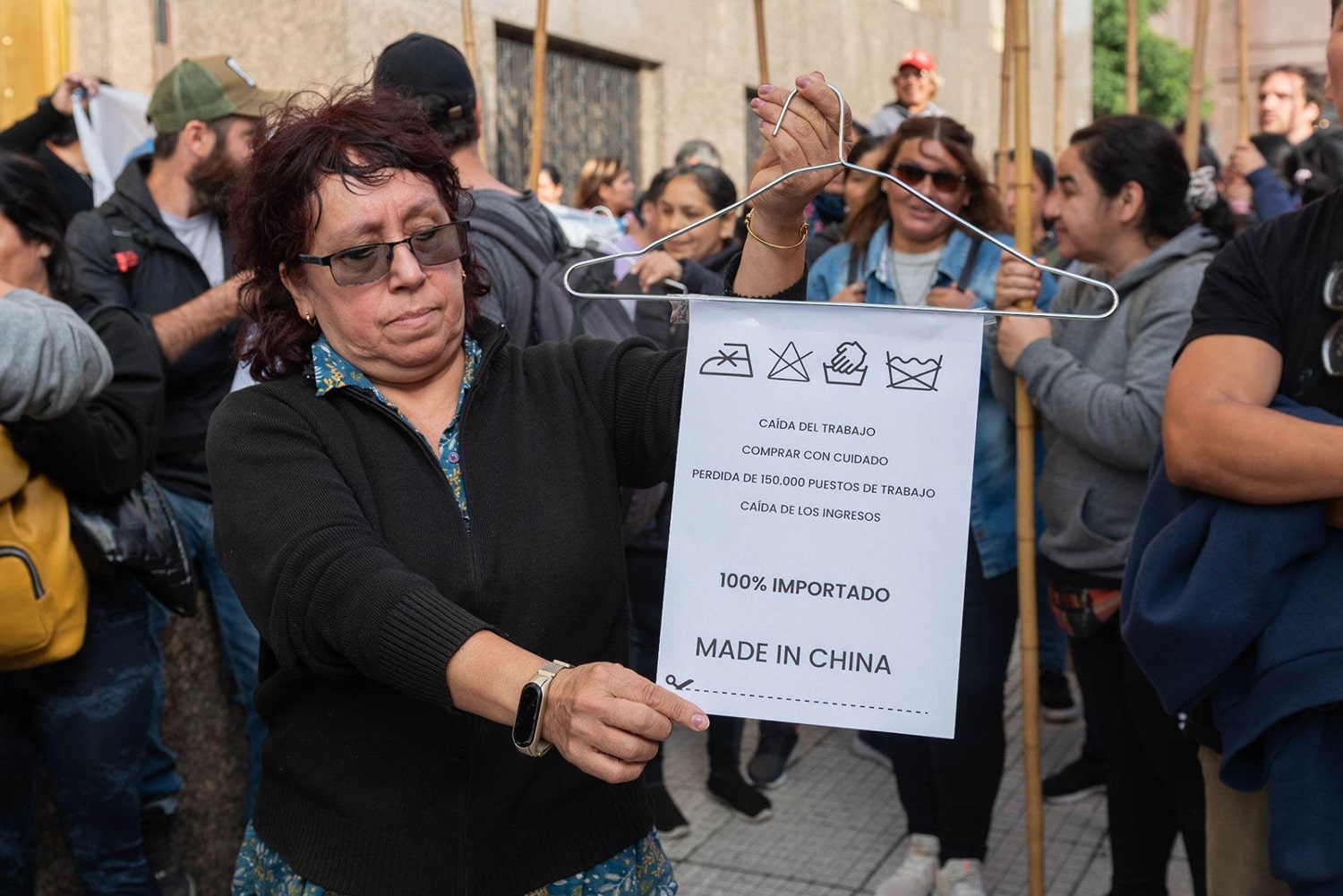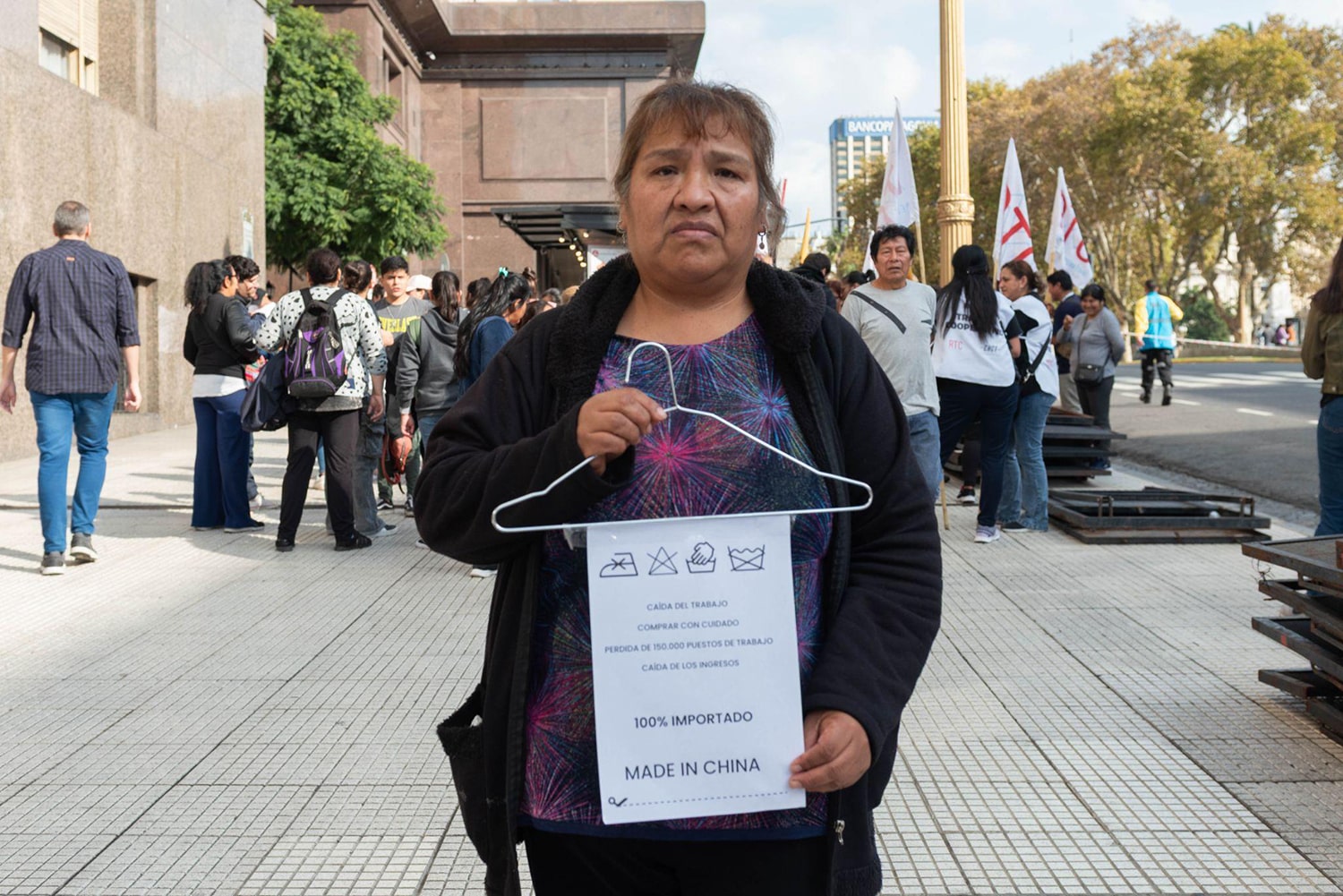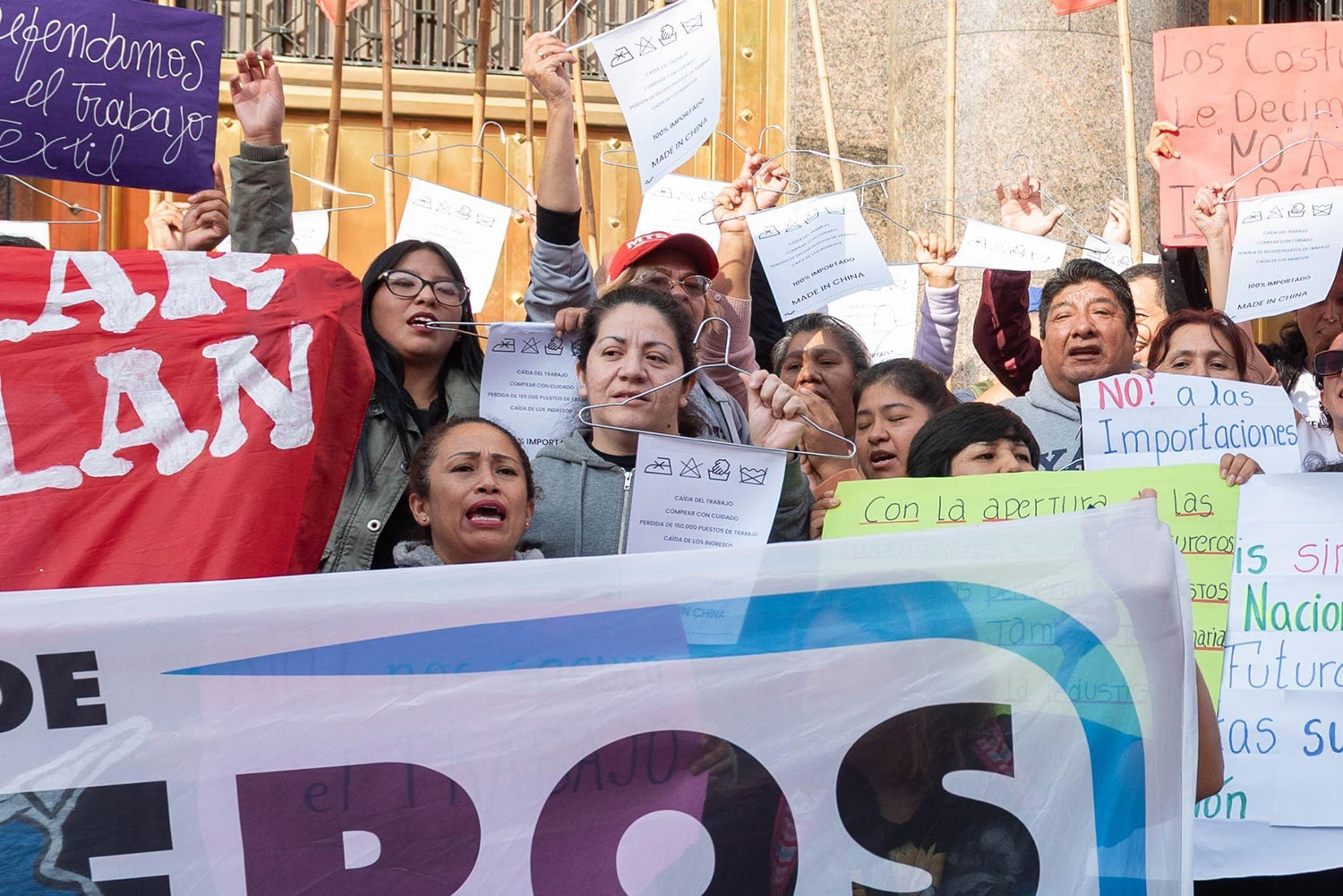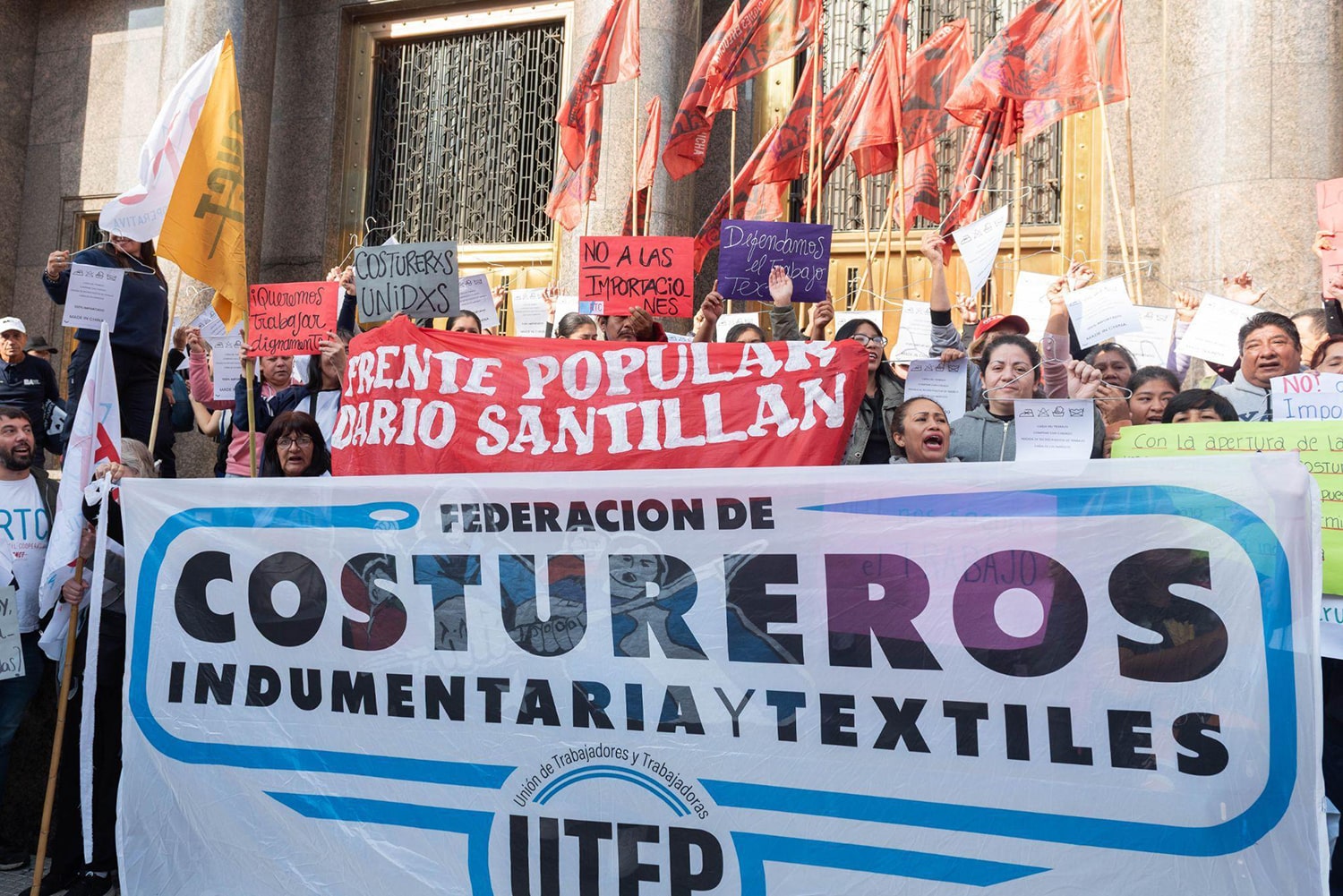By: The Sewing and Garment Workers Federation (FECOSET— By its acronym in Spanish)
The Argentine textile industry is going through a critical moment. After the national government recently decided to reduce import tariffs on clothing from 35% to 20%, thousands of garment workers now see their livelihood at risk. This massive market opening benefits large brands and products manufactured under exploitative conditions in Southeast Asia, and jeopardizes the survival of one of the country’s few 100% nationally integrated production chains.
The garment sector is the most vulnerable link in that chain. It sustains around 150,000 jobs, many of them within the popular economy — in small family workshops, self-employment, or cooperatives. 72% of those employed in formal jobs work informally, and many are not included in any official statistics. Most now earn half of what they did in 2022.
On top of the sector’s long-standing unstable working conditions, social programs and policies supporting self-managed work are now being cut. The drop in domestic consumption and freezing of garment prices have pushed an already struggling sector to the brink.
In response to this offensive, organized groups of garment workers— such as FECOSET and Red Textil — are raising their voices. On May 14, they called for a demonstration and artistic action in front of the Ministry of Economy to condemn this policy that undermines the right to work, and to demand genuine support for national production.
Representatives from the sector declared: “We want to work. If they take this away from us, they take away our food and our ability to send our children to school.” In a context of growing inequality and lack of protection, home-based and workshop garment workers continue to resist collectively, with organization and dignity.






